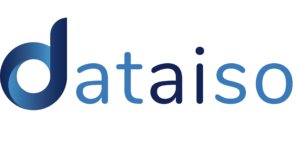Business Intelligence
Value your data, foster informed decision-making.

When data delivers clarity, every decision fuels measurable business impact. This drives data-driven success, no matter the organization or the industry. Yet, within an organization, information overload hinders progress, obscuring the insights needed—especially for strategic advantage. Business Intelligence (BI) transforms this complete data chaos into high-value opportunities.
As your BI consulting partner, Dataiso helps you harness all the dimensions of your data. We turn your raw information into actionable insights to empower informed decision-making that drives growth and efficiency.
Your challenges
Providing a clearer view of critical business data, BI is a valuable asset that enables informed decisions and more efficient operations—as well as accelerated growth. As data ecosystems expand, growing obstacles arise, limiting BI’s impact.
Dataiso has identified key challenges affecting the success of BI initiatives.
Untapped potential in BI
Organizations often leverage familiar tools like Excel and SaaS applications for decision-making. While these tools have their place, they may limit the power of BI.
Recurring analytical performance problems
Sluggish BI platforms frustrate users and delay critical decisions. This double whammy undermines the value and competitiveness of data-driven organizations.
Unforeseen data growth
Traditional data warehouses struggle to scale with growing data sources. This impacts their ability to handle heterogeneous data that overwhelms many BI environments.
Growing data inconsistencies
Evolving businesses expose design flaws in data warehouses and cubes used by many organizations. This raises concerns about the accuracy and reliability of the data.
Poorly managed BI implementations
Uncontrolled BI projects lead to fragmented data landscapes, isolated silos, and inconsistent insights. As a result, it misleads decision-makers, hindering operational efficiency and business activities.
Our key factors of success
Turning data into actionable insights requires more than just technology. Dataiso leverages seven key factors to deliver impactful BI solutions that drive strategic decision-making.
Each organization and need is different. Choosing the right BI technology is crucial given the large number of BI solutions with different uses (OLAP, ETL/ELT, reporting).
Business users benefit most from successful BI implementations. They gain self-service access to insights, empowering data-driven decisions. IT is freed from routine reports, and finance moves beyond manual spreadsheets, boosting overall efficiency.
Integrating BI with core processes brings decision-making closer to the action. Informed users adapt quickly, improving agility. As a result, they gain real-time insights, fostering ownership and a strong BI culture.
Building trust in data is a mission-critical initiative for a successful BI adoption. Inaccurate data creates barriers, discouraging users from engaging with valuable insights and hindering decision-making.
BI performance requirements vary based on user needs. Interactive queries demand real-time speed, while background tasks can tolerate longer processing times. Understanding these differences is crucial for designing or improving BI architectures.
Integrating BI with DevOps helps to streamline BI development and deployment initiatives. Moreover, CI/CD (Continuous Integration/Continuous Delivery) practices further accelerate the cycle by automating updates to data warehouses and cubes, and various other BI maintenance tasks.
Slow analytical processing cripples user experience and stalls business decisions. It is therefore important to put in place proactive methods, means, and tools to ensure optimal performance levels.
Our approach
An effective BI requires a user-centric approach combining both technical expertise and business acumen. At Dataiso, we work closely with your technical and business users to master their requirements. We use a tailored methodology that gives you the ability to succeed in your BI initiatives through a People-Process-Technology (PPT) framework.
Our services
Dataiso provides cutting-edge BI services to help organizations achieve real-world results. We go beyond theoretical methods, delivering bespoke solutions that address your specific challenges and unlock new opportunities.
BI strategy and roadmap
- Maximize return on investment (ROI) by aligning BI objectives with the overall strategy.
- Drive growth by identifying high-impact opportunities where BI can make a significant difference.
- Create a comprehensive BI roadmap for successful implementation strategies.
- Define the appropriate BI technologies and tools to meet unique business needs and drive innovation goals.
- Strengthen data integration scaling strategies by implementing data operations (DataOps) principles.
- Demonstrate the value of BI through compelling proofs of concept (PoCs) and proofs of value (PoVs).
BI audit and diagnosis
- Assess all existing BI practices, policies, and technologies.
- Identify gaps between the organization’s current state and BI best practices, including both technical and functional discrepancies.
- Assess BI health and observability, including models, pipelines, quality, consistency, and accessibility.
- Evaluate BI systems’ strengths and weaknesses using methods like performance testing, and user feedback.
- Review BI ethics, sustainability, security, privacy, and compliance.
- Benchmark BI maturity against industry standards with proven maturity models.
- Maximize BI investments through efficient optimization plans.
BI architecture deployment
- Implement tailored BI architectures for traditional BI, modern BI, self-service BI, or hybrid BI.
- Integrate best-in-class BI components, languages, and tools.
- Ensure seamless BI deployment on cloud platforms, on-premises infrastructure, or hybrid environments.
- Fine-tune BI infrastructure through smarter, proactive performance tuning techniques and efficient resource allocation.
- Strengthen BI security and governance through proactive measures leveraging data protection and privacy best practices.
- Streamline and scale deployments with robust BI operations (BIOps) practices.
Data warehouse and data mart design
- Build tailored data warehouse and data mart architectures (ODW, EDW, VDW) aligned with specific needs using industry-standard methodologies like Kimball, Inmon, and Data Vault.
- Seamlessly integrate data warehouses and data marts on BI environments.
- Create tailored models using methodologies like dimensional modeling (e.g., star, snowflake, and galaxy schemas), Entity-Relationship (ER), and Data Vault modeling (DVM).
- Ensure data consistency and integrity with robust data modeling standards.
- Take control of data model versioning and change management through effective version control systems.
- Enable ongoing model refinement and validation with regular reviews and updates.
Cube implementation
- Develop tailored OLAP (OnLine Analytical Processing) cube structures to meet analytical requirements using multidimensional and tabular approaches.
- Deploy cubes on BI environments for effective data analysis.
- Handle complex hierarchies and calculations using advanced analytical methods like in-memory analytics, columnar storage, and parallel processing.
- Enhance analytical experience with proactive cube performance optimization and scalability management.
- Enforce data accuracy, completeness, integrity, and consistency with efficient cube versioning and change management protocols.
- Enable ongoing cube refinement and validation through regular reviews and updates.
ETL/ELT development
- Create tailored ETL (Extract, Transform, Load)/ELT (Extract, Load, Transform) data flows using batch, real-time, or incremental methods for seamless integration of batch, stream, and event-based data sources.
- Enhance data quality and reliability through robust data cleansing, enrichment, and aggregation techniques.
- Handle incremental data updates and full refreshes with flexible mechanisms like change data capture, bulk loads, and delta loads.
- Improve data integration by implementing robust ETL/ELT performance, scalability, and fault tolerance practices.
- Elevate data flow accuracy, completeness, integrity, and consistency with efficient data pipeline management and change control protocols.
- Enable ongoing data flow refinement and validation through regular reviews and updates.
Analytical querying and reporting
- Align with evolving analytical requirements using tailored analytical queries powered by data intelligence.
- Enhance forecasting accuracy and uncover hidden patterns with advanced analytics methods, including predictive analytics and data mining.
- Enable informed decisions by delivering interactive, user-friendly reports and dashboards.
- Track business performance and identify growth opportunities with performance-driven reporting and key performance indicators (KPIs).
- Preserve accuracy, completeness, integrity, and consistency with efficient analytical querying and reporting versioning and change management protocols.
- Enable ongoing analytical query and reporting refinement and validation through regular reviews and updates.
Self-service BI
- Accommodate growing user needs with scalable self-service BI platforms.
- Empower business users to create their own reports with advanced user-centric methods like drag-and-drop interfaces and guided analytics.
- Secure data access and collaboration through robust methods like role-based access control, single sign-on, data encryption, and masking.
- Foster trust with continuous self-service BI improvements, ensuring data quality, consistency, and reliability.
- Support a strong BI adoption through user-centric self-service BI training and comprehensive change management programs.
- Gain a sustainable competitive advantage with effective data-driven BI innovation initiatives fueled by data intelligence.
BI migration
- Assess migration needs for cloud, on-premises, or hybrid BI, including compatibility and risk assessments.
- Validate existing scalability and performance across data models, pipelines, and reporting through stress testing.
- Build migration strategies aligned with analytics workflows and stakeholder needs.
- Implement comprehensive cutover and rollback plans, leveraging robust testing and validation methods.
- Seamlessly migrate BI assets to the target platform, with minimal disruption and risks.
- Support enhanced features and patches for better security and reliability with upgraded platform versions.
- Validate data integrity and quality post-migration, ensuring accuracy, completeness, and consistency of business-critical information.
BI security and governance
- Safeguard BI landscape with efficient security measures (e.g., data classification, encryption, access controls) following industry standards, including ISO 27001.
- Establish transparency, accountability, and compliance with regulations (e.g., Data Act, GDPR, CCPA) through future-proof BI governance.
- Strengthen data confidentiality, integrity, and availability using a comprehensive CIA triad model aligned with industry standards like 8000 and 25012.
- Uphold fairness, explainability, and privacy by addressing BI ethics and bias throughout the BI lifecycle.
- Enhance BI monitoring and preventive methods through proactive data observability.
- Integrate BI governance with overall data governance frameworks and best practices, including comprehensive policies and procedures.
Your benefits
- Actionable business insights and key findings.
- Improved key performance indicators (KPIs).
- Faster, data-driven decisions.
Mastering BI—from data warehousing to advanced analytics—unlocks data-driven decisions, greater efficiency, and a decisive competitive edge.


